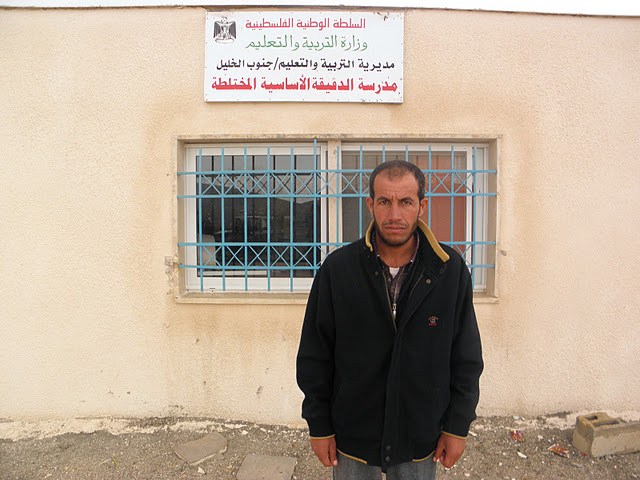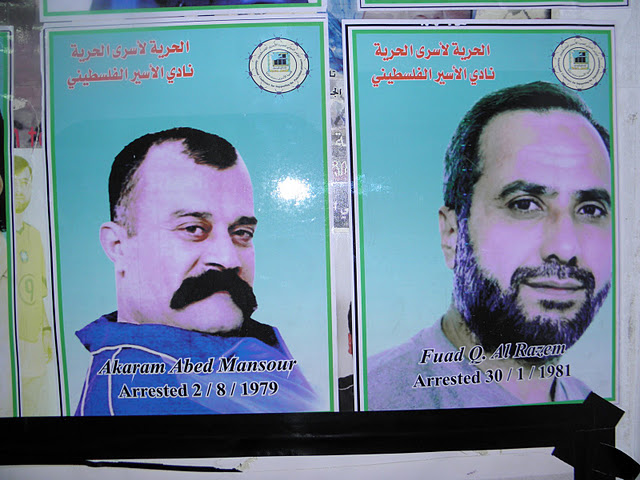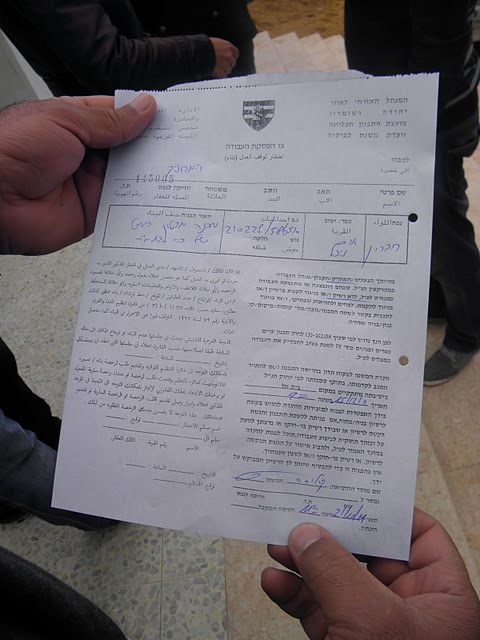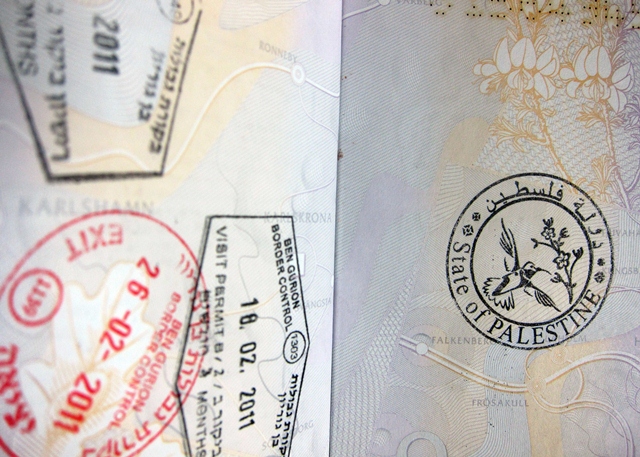Category: Reports
-

Dkaika: Israel continues to expel Bedouins
by Aida Gerard 23 November 2011 | International Solidarity Movement, West Bank The entire Bedouin village of Dkaika encounters demolitions, and all the villagers face expulsion. Every single construction of Dkaika has a demolition order totally over 75 demolition orders including a mosque, a school, a graveyard, water cisterns, housing tents, and folds for sheep.…
-

An interview with Amer Ahmad Al-Qwasmah, former prisoner
by Alistair George 23 November 2011 | International Solidarity Movement, West Bank Amer Ahmad Al-Qwasmah, 45, was released on 18 October 2011 as part of the prisoner exchange deal that saw 477 Palestinian prisoners (with 550 to be released at a further time, thought to be in December) in exchange for Gilad Shalit, the Israeli…
-

Demolition threats continue in Imnzeizil
by Aida Gerard 21 November 2011 | International Solidarity Movement, West Bank On the same morning when an official from the ICA, Israeli Civil Administration, promised to “pardon” the demolition orders of the solar panels in Imneizil, a village at the southern border of the West Bank, a new demolition order was delivered to the village…
-
Hebron: Family members share their stories of settler abuse
by Alistair George 22 November 2011 | International Solidarity Movement, West Bank As thousands of Israeli settlers and Zionists crowded into Hebron on Friday night, November 19th, and Saturday for Shabbat Chaye Sarah – celebrating Abraham’s biblical purchase of land on the site of the Ibrahimi Mosque, some Palestinian neighbourhoods experienced a surge in settler…
-
An interview with Khaled Jarrar: Stamping Palestine into passports
by Alistair George 21 November 2011 | International Solidarity Movement, West Bank Khaled Jarrar is a Palestinian artist and photographer from Jenin, currently based in Ramallah. In addition to photographing and documenting the Israeli occupation, he has designed a ‘State of Palestine’ postage and passport stamp. This week in an interview with Alistair George of…

